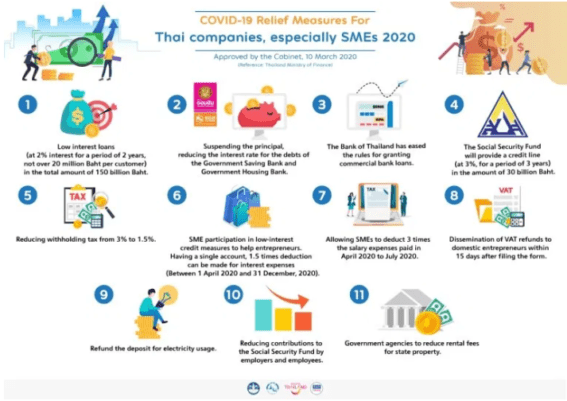Labor Law Reforms in Effect: Is Your Workplace Compliant?

Labor Law Reforms in Effect: Is Your Workplace Compliant?
13 ส.ค. 2020Since May 5, 2019, the new amendments to the Labor Protection Act (LPA) have been in effect. These provide added protections to employees regarding leave, relocation, and termination.
As they mainly benefit employees with additional days for leave and greater compensation rights, it is imperative that employers are aware of these changes to ensure they are complying with the new rules and that employees know their rights.
Higher Threshold for Severance
Previously, severance pay was capped at 300 days for employees who worked for a company for ten years or more. So, service beyond ten years would not see any additional benefit when it comes to severance. The new law adds an additional threshold. For 20 years or more of employment, employees are now entitled to 400 days severance pay.
So now, the severance pay schedule is:
- 3 months to less than 1 year: 30 days (1 month)
- 1 year to less than 3 years: 90 days (3 months)
- 3 years to less than 6 years: 180 days (6 months)
- 6 years to less than 10 years: 240 days (8 months)
- 10 years to less than 20 years: 300 days (10 months)
- 20 years or more: 400 days (13.3 months)
Additional Leave in Certain Cases
Maternity leave is now 98 days, up from the previous 90 days required by law, including pre-natal medical care, with employers obligated to pay up to 45 days’ wages during an employee’s maternity leave. The law also clarifies business leave in that employees are entitled to three days a year for business leave, whereas such leave was up to the employer’s discretion. However, these days are unpaid, and the exact nature of “business leave” is still unclear, so the employer may still have the right to determine what qualifies as such.
Relocation Terms Strengthened
When an employer is subject to an acquisition or merger that may affect employees, the new law stipulates additional specifications. The employer must notify employees of any status changes and must ensure that employees maintain at least their current compensation and benefits, even if they are being transferred to a new employer. If the employee doesn’t agree, there are protections in place for the employee without having to take legal action first.
Furthermore, if the change requires a relocation that the employees believe will materially impact them, they can refuse for termination with full severance on the relocation date. Previously, they would only be entitled to 50% severance.
Payment for Termination and Work Suspension Specified
Employers could immediately terminate certain employees without cause and leave so long as they made a payment in lieu of notice. However, under the previous version, employers were not obligated to pay in lieu of notice at a specified time. Now, employers must pay in lieu of notice on the day that the termination is effective.
And under the amended LPA, employers who temporarily cease operations in certain cases must pay employees at least 75% of their normal wages during the suspension of business.
Also, any employer who does not does not compensate employees according to the law, such as payments in lieu, payments during business suspension, proper severance, and overtime, may be sued by the employee in question for that compensation plus 15% interest per annum, up from 7.5%.
Equal Pay for Equal Work Rights Enforced
Another significant amendment to the LPA is the legislation for equal pay for equal work, which can be construed as a notable step towards gender equality. The new law dictates that employers must guarantee that all employees, whether male or female, that do the same work are entitled to the same pay, including overtime and holiday rates, and the same time off.
Employers Must Amend Work Rules
These are just the major changes to the LPA outlined in this article. We highly recommend that all employers review the law, with counsel if need be, and ensure that their work rules comply with all the changes to the law. If not, they should update their work rules and distribute them to their employees as soon as possible. Also, employees should also make sure that their employers are in compliance with the new law to ensure that they are availing themselves of these additional protections provided to them under the new regulations.
Whether employer or employee in Thailand, you should be aware of your obligations and rights under the law here. If you have any doubt as to your standing in any case, you should contact your trusted legal advisor who can clarify your status.
เราภูมิใจที่ได้ให้บริการ




















